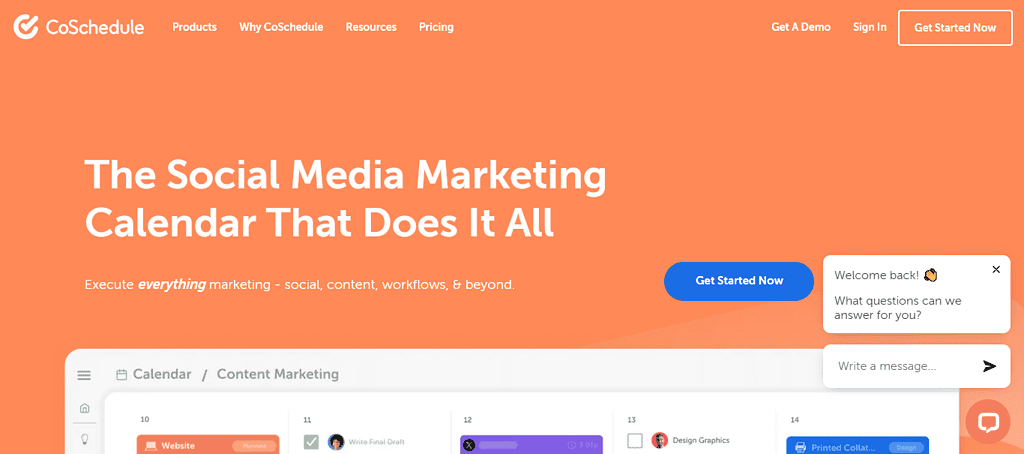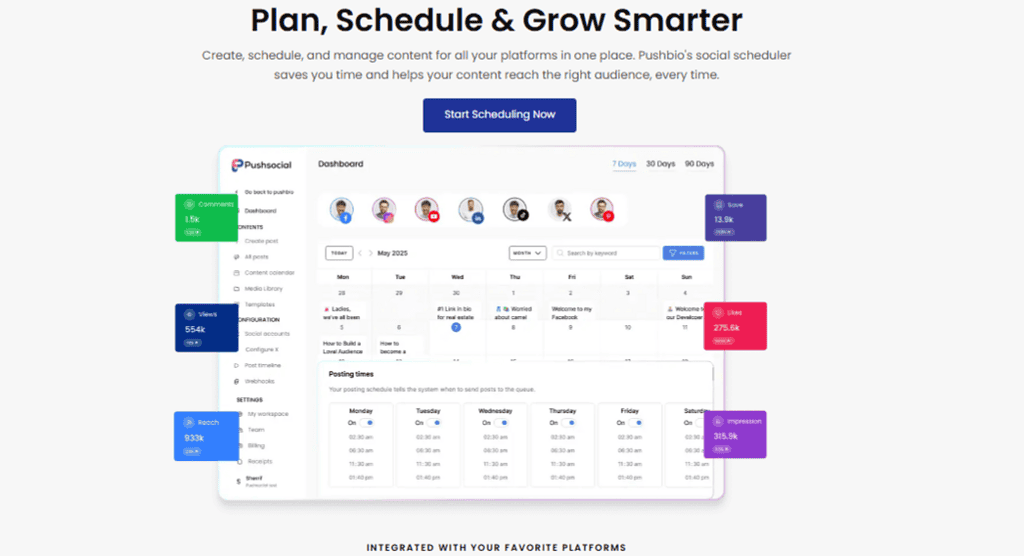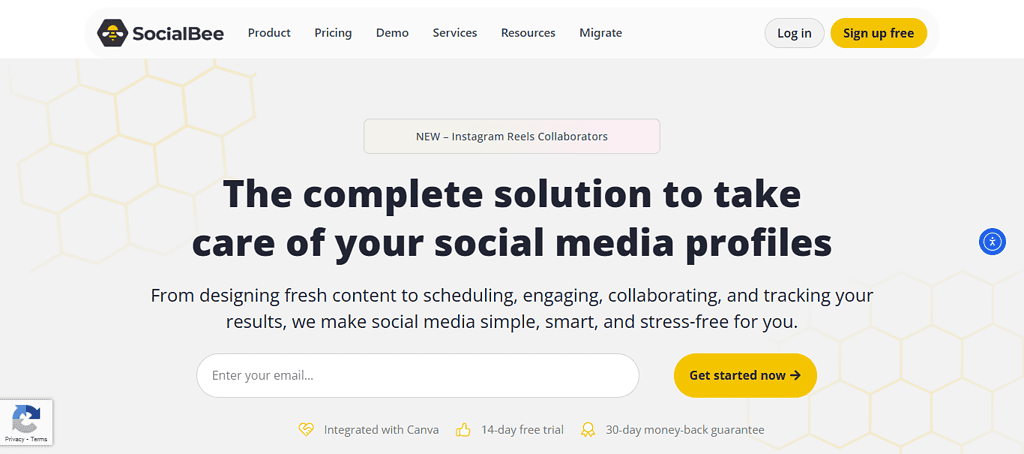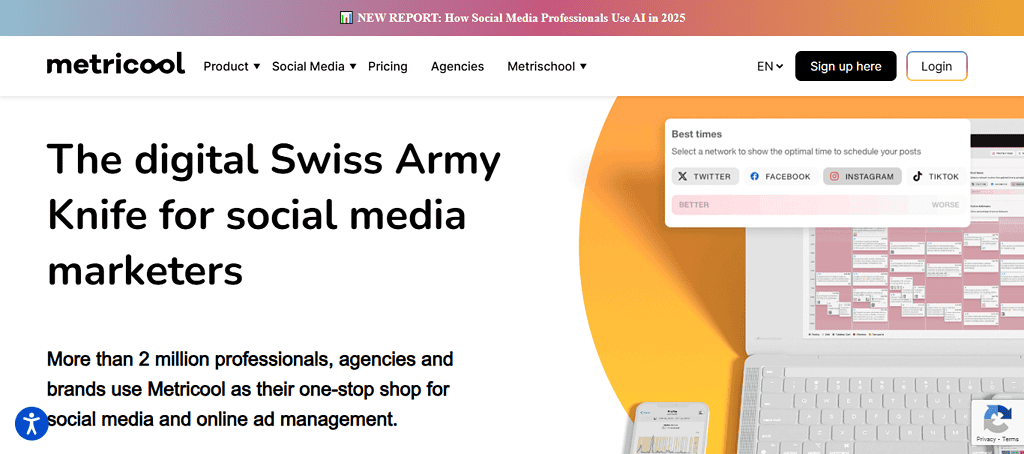CoSchedule is a popular content marketing and social media management tool that helps creators organize, schedule, and publish their content with ease. It is widely known for its editorial calendar, marketing automation features, and ability to streamline content planning for businesses and teams.
However, while CoSchedule claims to work well for both individuals and teams, teams and agencies have to shell out more money to get access for more team members. Solo creators using CoSchedule also have to spend more to get access to more profiles and features. Managing content as a team-centered brand requires tools that are affordable, simple to use, and tailored to team workflows.
Solo creators, bloggers, influencers, or freelancers don’t always need all the extra cost that comes with CoSchedule. Instead, you may be looking for the best cheap CoSchedule alternatives or a flexible alternative to CoSchedule for small creators that can help you stay consistent without breaking the bank.
In this guide, we’ll explore the 5 best CoSchedule alternatives for solo creators. These tools are budget-friendly, easy to manage, and perfect for taking your content creation to the next level.
Why solo creators need a CoSchedule alternative
Being a solo creator often means wearing many hats at once. You often operate as a content planner, social media manager, marketer, and even designer. While CoSchedule can help you handle some of these, it’s built with teams and larger businesses in mind. For solo creators working with tight budgets and limited time, a simpler and more affordable solution is usually the smarter choice.

The features most solo creators truly need are straightforward: social media scheduling, a content calendar to stay organized, basic analytics to measure performance, and sometimes light collaboration tools. To this end, using CoSchedule means many of its features go unused by small creators, yet they still have to pay for them.
That’s why exploring alternatives makes sense. The right CoSchedule alternative for solo creators can deliver the same core benefits, sometimes with even better usability while costing far less. These tools are designed to give creators the flexibility and focus they need without the extra complexity.
Criteria for choosing the right alternative
Not every tool will fit the unique needs of a solo creator, which is why it’s important to know what to look for before picking an alternative to CoSchedule. The right tool should balance cost, features, and ease of use so that it supports your growth without overwhelming you.
Here are some key factors to consider:
- As a solo creator, you don’t have time for complicated systems. Look for a platform with a clean interface and simple workflows that you can learn quickly.
- Budget is often a big concern for solo creators. The best CoSchedule alternatives for individual creators should offer flexible free plans or low-cost options that won’t drain your resources.
- Focus on what matters most which includes social media scheduling, a content calendar, automation for repetitive tasks, and basic analytics to track performance.
- Choose a tool that works for your current needs but can also grow with you as your brand expands.
The above criteria will help any creator find a tool that helps them stay consistent, save time, and manage their content without unnecessary stress.
Best 5 CoSchedule alternatives for solo creators
Make no mistake, CoSchedule is great for teams and agencies who need all the features it offers. On the other hand, solo creators who have less needs might want to look elsewhere.
Finding the right tool to manage your content and social media doesn’t have to be overwhelming. If CoSchedule feels too complex, there are plenty of platforms that deliver powerful features that cater to the needs of solo creators.
Below are some of the best cheap CoSchedule alternatives that solo creators and small businesses can rely on:
1. Pushbio
Price: Starts from $19 per month for 10 profiles.

Pushbio is your one-stop shop when it comes to social media management. It’s a hub built for both solo creators, small and big teams. If you’re searching for CoSchedule alternatives for solo creators that are powerful yet affordable, Pushbio ranks top.
It offers everything you need content planning, scheduling, publishing, analytics, and even sales tools all within a simple dashboard that doesn’t feel overwhelming. You can manage multiple accounts, discover content ideas, and track your progress with ease.
Key features of Pushbio
a. Advanced scheduling across platforms
Easily schedule and publish posts across Facebook, Instagram, TikTok, YouTube, LinkedIn, Pinterest, Threads, and more. This helps solo creators keep their brand active without juggling multiple apps.
b. AI-powered content tools
Pushbio’s built-in AI suggests captions, generates hashtags, repurposes old posts, and even creates visuals. You can also store everything in a media library, making it easy to keep content fresh and consistent.
c. Drag-and-drop calendar
The visual content calendar makes planning enjoyable. Reschedule posts with a simple drag and drop, or upload hundreds at once if you’re managing multiple projects.
d. Clear analytics and insights
Instead of complex reports, Pushbio shows easy-to-understand insights like which posts perform best, what time your audience is most active, and what content drives the most clicks. This clear breakdown helps solo creators prioritize their actions inline with results.
e. Monetize your Link in bio
Pushbio offers you more than just an aggregate link. You can showcase products, host premium communities, sell digital items, accept bookings, grow your email list, and even host giveaways from one professional bio page. This means creators are able to maximize their earning potential online.
f. Direct audience marketing
With Pushbio, you own your audience. Creators can capture leads through their link in bio, then send newsletters, promos, or updates right from their dashboard. This removes the need for any third-party tools.
2. Socialchamp
Price: Starts from $4 per month for 1 profile.

Socialchamp is a beginner-friendly tool that makes managing multiple social media accounts simple and affordable. It supports popular platforms like Facebook, Instagram, Twitter, LinkedIn, Pinterest, YouTube, and even Google Business Profile. With its clean interface, you can schedule, bulk schedule, and publish posts in just a few clicks.
The platform also offers a visual content calendar, RSS feeds for easy content distribution, and a content suggestions tab that helps creators discover new ideas. For performance tracking, Social Champ provides analytics and even white-label PDF reports that are great for freelancers or small agencies.
Pros
- Very affordable with plans starting from $4.
- Easy-to-use interface designed for individuals and small businesses.
- Bulk scheduling and content suggestions save time.
Cons
- Not ideal for very large teams with complex needs.
- The cost can easily run up if you are adding more profiles.
- Advanced reporting may be limited compared to higher-priced tools.
3. SocialBee
Price: Starts from $24 per month for 5 profiles.

SocialBee is another budget-friendly platform that covers a wide range of social media management needs. It includes tools for creating, scheduling, re-queuing evergreen content, and light team collaboration. Solo creators often highlight its ease of use and helpful customer support.
While SocialBee is effective for social media, it doesn’t offer strong tools for blogging or email marketing. Its analytics are also less detailed compared to more extensive platforms, but it shines in automation and post recycling features that keep your feeds active.
Pros
- Affordable and simple to use.
- Great customer support.
- Evergreen post recycling keeps content fresh.
Cons
- Analytics are not very advanced.
- Doesn’t support blogs or email newsletters.
4. Metricool
Price: Starts from $18 per month to manage 5 profiles

Metricool is perfect for those who want to dive deeper into analytics while also managing content. It provides detailed reports and lets users compare their performance with competitors.
Metricool is one of the top CoSchedule alternatives that cost less but offers superior insights. Its competitive tracking makes it valuable for brands that want to measure their progress against others in their industry. it offers a drag-and-drop planner for scheduling as well as built-in competitor analysis to help you monitor your industry.
Pros
- Strong competitive insights
- Simple scheduling
- Excellent analytics.
Cons
- Limited support options
- Slightly higher base price than basic tools.
5. Agorapulse
Price: Starts from $79 per month for 10 profiles.

Agorapulse is a more comprehensive solution, offering powerful tools for scheduling, collaboration, and analytics. Features like Canva integration, saved hashtags, and a writing assistant help improve your posts quickly. It also includes social listening, which allows you to monitor conversations about your brand and competitors in real-time.
Its reporting options are advanced, making it suitable for creators who want deep insights into their social performance. However, it doesn’t support some less popular social platforms, and users sometimes experience minor issues with scheduling.
Pros
- Writing assistant and Canva integration for better content creation.
- Social listening keeps you aware of conversations about your brand.
- Detailed analytics and reporting.
Cons
- Doesn’t support every social network.
- Scheduling can occasionally glitch.
To round up
Finding the right tool to manage your content is all about striking a balance between your goal, budget and your workflow. As a solo creator, you need a management tool that saves time, keeps you organized, and helps you grow without draining your resources. That’s why we’ve come up with this extensive list of the best CoSchedule alternatives for solo creators.
Among the options, Pushbio remains a choice to reckon with. With its powerful features ranging from advanced scheduling to analytics and link-in-bio sales, it gives solo creators everything they need to maximize their potential in one place.
The best way to know which platform fits your style is to test them. The right tool will not only save you time but also give you the confidence to focus on what truly matters which is creating content and growing your audience.








